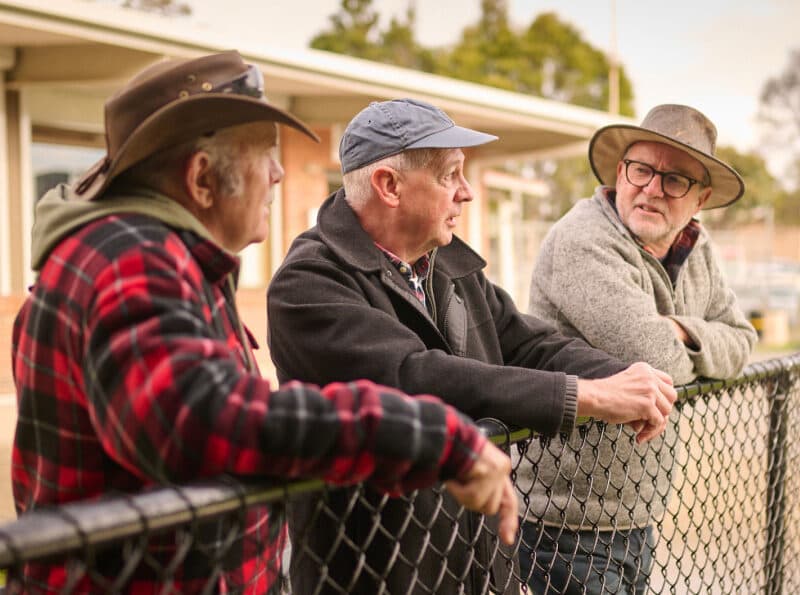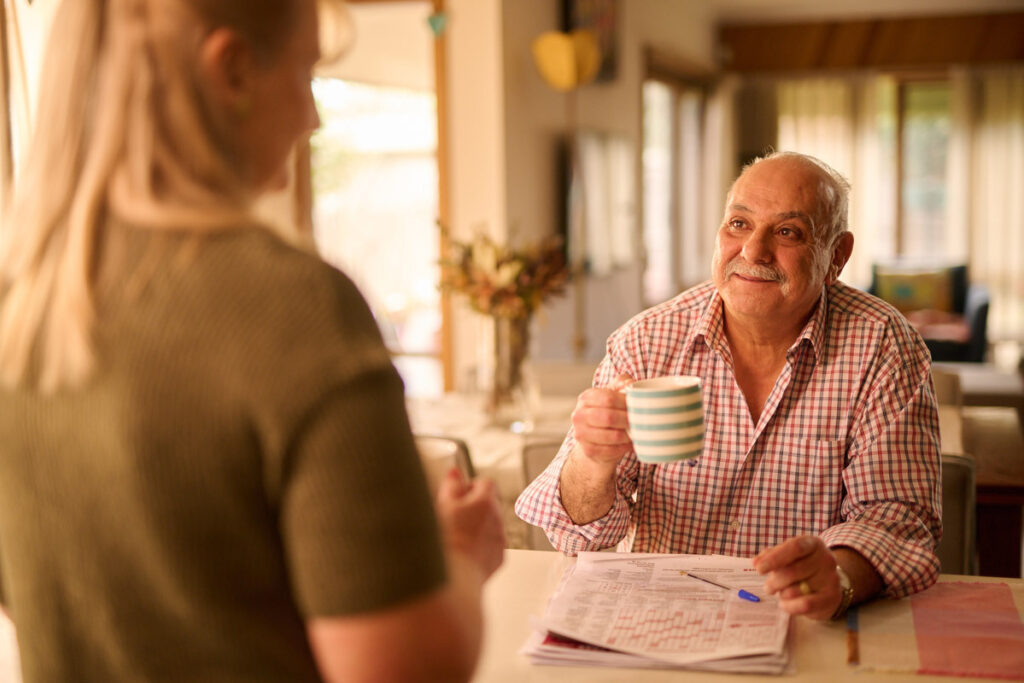For Rural & Remote communities
A new National Lung Cancer Screening Program is available, with extra services and support to help rural and remote Australians access the program.

A new National Lung Cancer Screening Program is available, with extra services and support to help rural and remote Australians access the program.
If you’re aged 50 to 70 and have a history of smoking, you may be eligible for free lung screening that could save your life.
Getting to health services can be more difficult if you live outside of a city. Telehealth appointments and mobile screening services are available to bring care closer to home.

Good to know
Lung cancer rates are higher in regional and remote areas, so this program is especially important for helping communities find lung cancer earlier, when it's easier to treat.
What is lung screening?
Lung screening uses a low-dose computed tomography (CT) scan to check your chest for early signs of lung cancer, before you notice any symptoms. When lung cancer is found in the early stages, before symptoms start, it’s much more treatable.
This scan is quick, painless and free for eligible people. And you don’t have to quit smoking to take part.
It's Good to Know TV Ad for Rural and Remote communities
How to get screened in a rural or remote area
Living outside a major city shouldn’t stop you from getting the health care you need. The National Lung Cancer Screening Program has made it easier for people in rural and remote areas to take part.
Here’s how the process works:
Step 1: Book an appointment with your doctor or health service
You can book in at your local doctor’s clinic, Aboriginal Health Service, or your community health centre.
Good to know: You can also contact your health service to see if they offer telehealth appointments if in-person visits are hard to get to.
At your appointment, the doctor or nurse practitioner will ask you some questions to check if you’re eligible. If you're eligible, they’ll provide you with a program-specific request form to book your free scan.
Step 2: Book your free scan
Your health service will let you know where the closest radiology services are. If you’re in a town where a Heart of Australia mobile screening truck is visiting, your health service can help you book a scan while the truck is in your area.
Good to know: If the mobile service isn’t near you, your doctor can help arrange a scan at the closest service, and travel support may be available in some areas.
Step 3: Have your scan
When you arrive at the clinic:
- you will be welcomed by a staff member, and they will explain what to expect
- you might need to fill out some paperwork and confirm your details
- you may be asked to complete a health check
- you will be asked if you can lift your arms above your head for 5 to 10 minutes.
For the scan:
- a radiographer will take you to a private space for comfort
- you will be asked to lie flat on the bed with your arms above your head
- will need to hold your breath and lie still for a few seconds while the machine takes images of your lungs.
Step 4: Get your results
Your results will be added to the National Cancer Screening Register (NCSR) and sent to your doctor. You won’t get your results on the day of your scan. The NCSR will contact you about what you need to do next (via text message or letter), which might be to see your doctor or have a telehealth appointment to discuss your results.
If your scan is clear, you will need to come back for your next free scan in 2 years. Having regular screening is the best way to find lung cancer early, when it’s easier to treat.

Mobile screening services
Heart of Australia has been contracted by the Australian Government to provide mobile screening services in some rural and remote areas.
Heart of Australia's new trucks will travel to remote and regional communities to bring care to you. These trucks will have CT scanners and testing equipment to provide services from screening to results.
Find out more about the trucks and where they will be travelling to on the Heart of Australia website.
Do it for your health
It doesn't matter if you smoke or have quit, lung screening can help give you more years with your loved ones.
Talk to your doctor or healthcare provider if you think you're eligible – it could save your life.